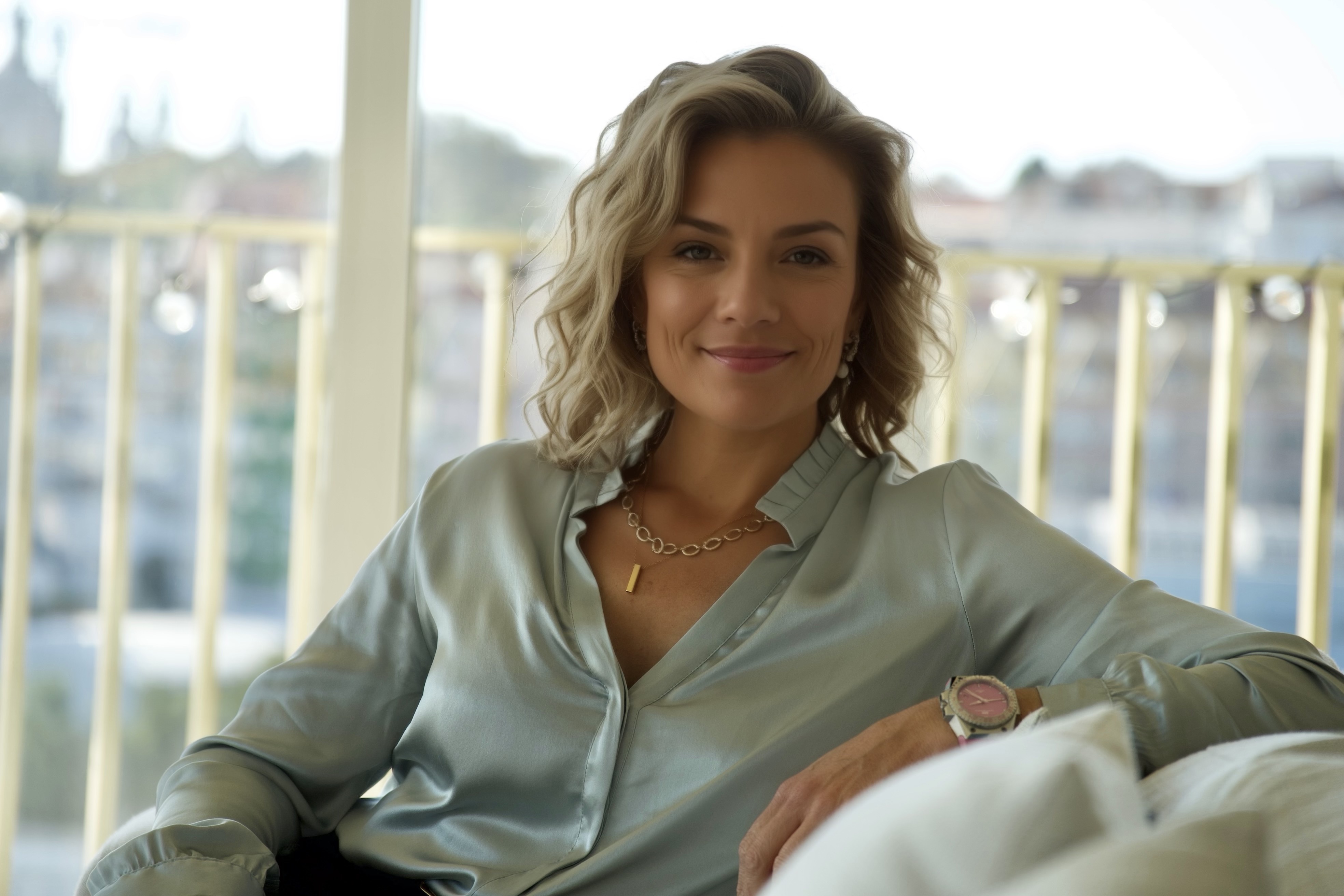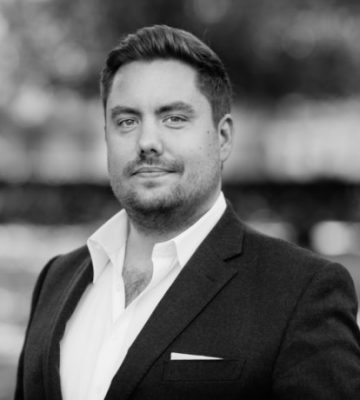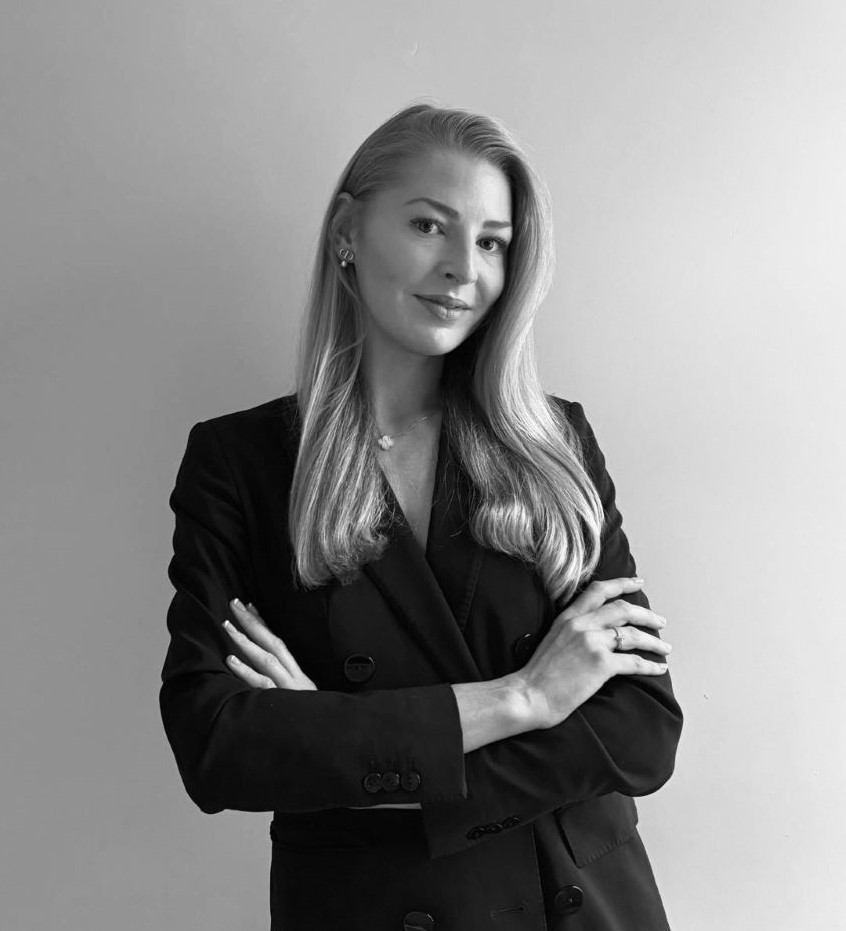As an award-winning Marketeer (Nike, Chanel), Founder, Advisor, and Cancer Coach, Emma has had the pleasure of working with successful entrepreneurs, global executives, international athletes, celebrities, and royalty for over 20 years across six continents. In Emma's spare time, she's sailed the Pacific, dived in Sipadan, and driven across Africa.
Emma has worked across large global corporations, as well as founded, run and sold her own CBD beauty start up.
From Health & Wellness, to Fitness, Luxury, Beauty and FMCG, innovation is always at the core of how she approaches each new challenge. Whether that’s innovation across product, brand or marketplace, Emma loves to co-create winning strategies that drive brand and business growth for a strong, sustainable future.
Having worked on some amazing brands, including Nike, Chanel, and Quintessentially portfolio, founded your own business, and also acted as a cancer coach, can you share what deeply inspires you?
I asked my 15-year-old daughter the other day, "What makes a great brand?' Do you know what she said? "Morality defined by action."
Gen Z, which my daughter is a part of, is the generation making the decisions that will shape the future, and it's fascinating to see how they view this expanded role of brands and businesses. Her response is indicative of the fact that times have changed. Delivering on a brand promise, which used to be the singular focus for businesses, has become table stakes.
Brands must keep their word about the products and services they provide and give back by doing good for society and the wider community. I've been very fortunate over the years to work with some of the world's best brands, Nike in particular, that focus on moving the world forward. In Nike's case, through sport. This brave risk-taking (standing by Colin Kaepernick against social inequality and police brutality) is a fantastic example of a brand taking bold action.
Despite the fact that supporting Kaepernick and other Nike Athletes led to disgruntled consumers burning Nike shoes in the street and Trump – President at the time – openly criticising the brand, Nike stood firm. As an employee during that time, I couldn't have been prouder, and more inspired to "Do the Right Thing" (a Nike Maxim). It's this strength of purpose, delivered with passion that, for me, is truly inspiring.
On your journey to date, what would you say has been the most significant moment or milestone that has shaped the person you are today?
In terms of professional milestones there are several. I was sent off to Dubai in my early 20s to set up and run the Middle East office of a London-based Advertising Agency. It was a huge challenge, not least of all adapting to work across the GCC countries, but also from the point of view of growing and managing what became a large team. We launched the largest indoor sports academy for kids in Qatar, "Aspire", and flew in sports legends, including Maradona and Pele, for a 3-day programme.
I would also say that running Global Brand Strategy for the Rio Olympics at Nike was a milestone, a dream come true really. I'd missed the London 2012 Olympics, having moved to Portland, Oregon, with Nike a few months earlier, so it was a real treat to be able, four years later, to be out there overseeing a host of incredible activations (for Athletes, Customers and Consumers). We also delivered a community project initiative which involved refurbishing 22 different community sports centres across Rio and beyond.
In a world of so much digital innovation and increasing focus on brand performance, it can be easy to forget the power of putting your brand into the hands of the consumer in the physical world. Brand storytelling that engages consumers in a very personal, interactive sense and unites a physical/digital experience is still incredibly important.
Every year, the pace of change gets ever faster. Against this backdrop, how do you ensure you stay adaptable and open to new opportunities?
The pace of change is accelerating. In terms of innovation across product, brand and marketplace. There is so much disruption – geopolitical, economic disruption, a splintering of long-held social contracts and a polarisation of wealth and opportunities. There are dynamic and innovative new players on the world stage – countries, corporations, individuals.
There has also been huge change and disruption to marketplaces: online growth, a proliferation of platforms, social and digital models, and, of course, accelerating advancements in AI. This means that companies need to be flexible and adapt to ever-changing consumer needs. After all, the consumer decides.
But in order to empower your consumers, you need to be a brand that listens. Focusing on building engaged communities to create brand content will help ensure that you are aware of new trends and able to leverage the consumer's voice to connect your brand to the cultural conversation. This will drive relevance, meaning, loyalty, and, of course, ultimately power sustainable business growth.
Founding a business or organisation often involves taking risks. But what role do you believe risk-taking plays in achieving success?
Risk-taking is really important to achieving success in business, as calculated risk-taking often leads to opportunities for growth, innovation and advancement. Building a business requires a commitment of both time and money, risks in and of themselves. Balancing risk with caution and strategic planning is important to maximise the chances of achieving desired outcomes. Robust strategic planning – a clear vision, specific goals, and a mission grounded in purpose - can really help provide context and a filter for risk-taking. Risk-taking also requires courage, confidence and a willingness to embrace uncertainty – on the part of the individual and the organisation.
In a small business context, it involves making a decision on the basis of the information that you have today, choosing progress over perfection, BUT making sure that you have the flexibility to pivot in the future if you need to. Having set up a CBD business based on tinctures, but then seeing the commoditisation of hemp along with an ever-more crowded marketplace competing on price versus quality, led to me taking the decision to pivot with LUV Wellness into skincare. During that journey, I also saw how popular CBD was becoming, and because of the research and development we were involved with, we chose to release a skin serum made with CBG. This ensured that we were at the cutting edge of innovation in the space and able to differentiate from the competition.
What is your personal success philosophy, and how do you use this to inspire and motivate those around you?
I have a number of mantras (some borrowed from Nike) that make a difference in my success, both personally and professionally.
- Do the right thing
- Progress over Perfection
- Your job isn't done until the job's done
- Listen to the Voice of the Consumer - The Consumer Decides
The best marketers focus religiously on one question: What does the customer need?
The marketing experts I've worked with all have different styles and preferences, but all of them have a consumer-centric approach that puts the target market first. Because the truth is, it doesn't necessarily matter what you think or feel about something as a marketer. The voice you have to focus on is the consumer's, not yours.
In every decision you make, big or small, you need to keep asking yourself: am I really focused on serving the consumer here? Is this what they want and need? Being able to answer these questions doesn't come overnight. It comes from spending time where they are, showing up consistently to find out their problems, learning their language and presenting your solution in a way that resonates.
Ultimately the consumer's preference must be the marketer's compass, and if you find their true north, it won't be long before your business starts getting where it wants to go.
Overcoming challenges and displaying resilience are increasingly important. Can you share any setbacks you've encountered and how you've used that experience to learn and grow?
Diagnosed at 39 with Stage 3 triple negative breast cancer whilst working in a high-profile stressful role at Nike, I was the healthiest person I knew. A bit stressed, juggling corporate life with two young daughters, but healthy and fit, nonetheless. Having had time to reflect on my journey since then, I've become aware that everyone talks about what cancer takes away from you but not what it gives you.
Cancer taught me how to move through illness. Some of the lessons I learnt are the ones you often hear people talk about: humility, perseverance, and compassion. But for me, the education was even bigger. Cancer transformed the way I live, work, play, and love. It gave me the insight, drive, and ambition to create the LIVE BRAVE anti-cancer brand and platform and the LIVE BRAVE community.
Above all, cancer taught me the benefit of having a strategy, the importance of being able to delegate according to different individuals' strengths, and the power of a re-frame to create solutions to any challenge. It reinforced the power of the collective and how crucial building great teams (that you empower and trust) is to overall success.
Uncovering, supporting and backing ideas can often make a difference. What do you believe is important when seeking to foster a culture of innovation and creativity?
- Inclusivity and open dialogue – a culture where all ideas are welcome
- Diversity – in all its forms but especially fostering an environment that supports diversity of thought
- Sustainability – ways to create and innovate that have a positive impact on profits, people and planet
- Trust - the ability to trust your team
- Risk-taking – encouraging a team so that they are empowered to take risks
- Integration and route to market alignment - Understanding that a culture of innovation can and should impact all areas of the organisation, from product to brand to marketplace
- Flexibility – to identify when something isn't working and then pivot in a direction that is
- Humility – of leadership to take responsibility when things don't go to plan
- Collective wins – recognition of the wins and reward for progress felt throughout the organisation
Successful people often face challenges in balancing work, commitments and personal life. How do you manage this balance, and what strategies do you use to prevent burnout?
Having experienced insane work pressure myself under a variety of different leaders, I take my responsibility to model healthy behaviours for my team really seriously. I make sure that I switch off in the evenings and weekends and that I don't email or call unless it is super urgent or a really time-sensitive matter.
I try to exercise in the mornings before getting into my workday (that said, in full transparency, I have been known to balance my laptop on my Peloton handlebars in the past!)Whilst at Nike, I worked with the team tasked with making the organisation the healthiest place to work. It is not a small task – even for a company and workforce that is passionate about sports!
After in-depth research and analysis, we identified areas for growth and improvement (more than we had expected before asking staff for their feedback!) and were able to make recommendations to cover elements that mattered most to individuals. From food choices, to working hours and time off, to gym membership and healthcare benefits, making the changes to policy was relatively straight forward.
So much of any behavioural shift, however, relies on Senior Management buy-in to create the change. It can be simple things, but the more that employees know that the organisation cares about them as human beings and values their health and wellness, the more, ultimately, they will give.
You've already achieved a great deal in your career, so what keeps you going and ensuring you bring your best self to your endeavours?
Over the years, I've realised that contribution happens when there are strong values that match. I love it when my values and those of the organisation that I'm working with are aligned, often linked to a higher purpose or corporate mission. For example, with Nike, "changing the world through sport," or with my CBD start-up, "Healthier Women create a Healthier World". I am continually curious. I don't often sit still, and I'm always exploring how to evolve, change and grow.
What keeps me going is this intrinsic drive, and belief in being able to create better. I love working hard, but above all I love contributing and making a difference.
Finally, if you could talk to your younger self when entering the world of work, what advice would you give yourself to help you better prepare for what lay ahead?
Be Brave. Be Courageous.. and identify when facing a decision whether you're acting out of love or fear.Have the confidence to chase your dreams, unashamedly.
Dream Big. Plan Meticulously. Execute Flawlessly.
The views and opinions expressed in this piece are those of the author:
- and do not consituite advise or a recommendation
- and do not necesserilay reflect the official policy or position of Enness
- and are not intended to indicate any market or industry viewpoints, or those of other industry professionals





